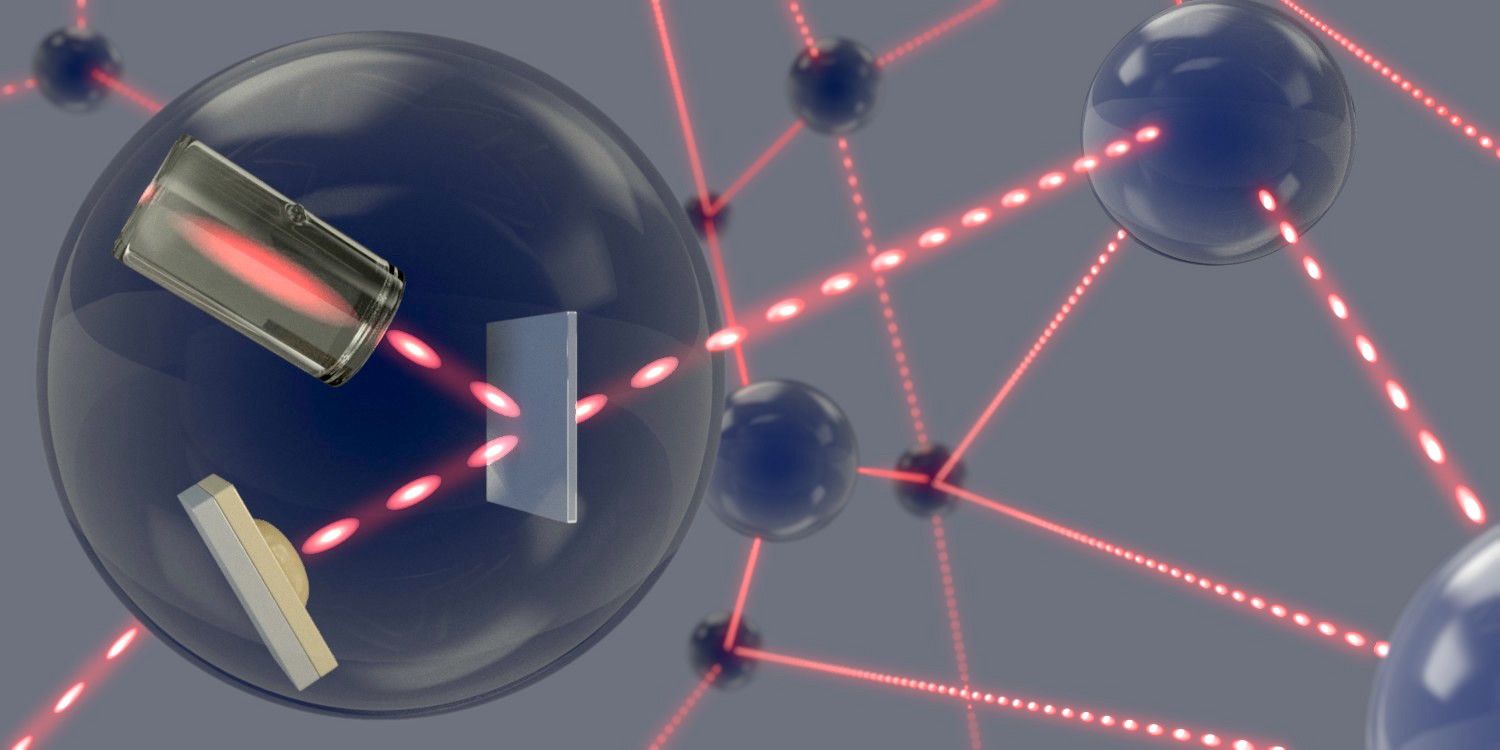Physicists from the University of Basel have developed a memory that can store photons. These quantum particles travel at the speed of light and are thus suitable for high-speed data transfer. The researchers were able to store them in an atomic vapor and read them out again later without altering their quantum mechanical properties too much. This memory technology is simple and fast and it could find application in a future quantum Internet. The journal Physical Review Letters has published the results.
Even today, fast data transfer in telecommunication networks employs short light pulses. Ultra broadband technology uses optical fiber links through which information can be transferred at the speed of light. At the receiver’s end, the transmitted information has to be stored quickly and without errors so that it can be processed further electronically on computers. To avoid transmission errors, each bit of information is encoded in relatively strong light pulses that each contain at least several hundreds of photons.
For several years, researchers all over the world have been working on operating such networks with single photons. Encoding one bit per photon is not only very efficient, but it also allows for a radically new form of information processing based on the laws of quantum physics. These laws allow a single photon to encode not only the states 0 or 1 of a classic bit, but also to encode a superposition of both states at the same time. Such quantum bits are the basis for quantum information processing that could make unconditionally secure communication and super fast quantum computers possible in the future. The ability to store and retrieve single photons from a quantum memory is a key element for these technologies, which is intensively investigated.









Comments are closed.